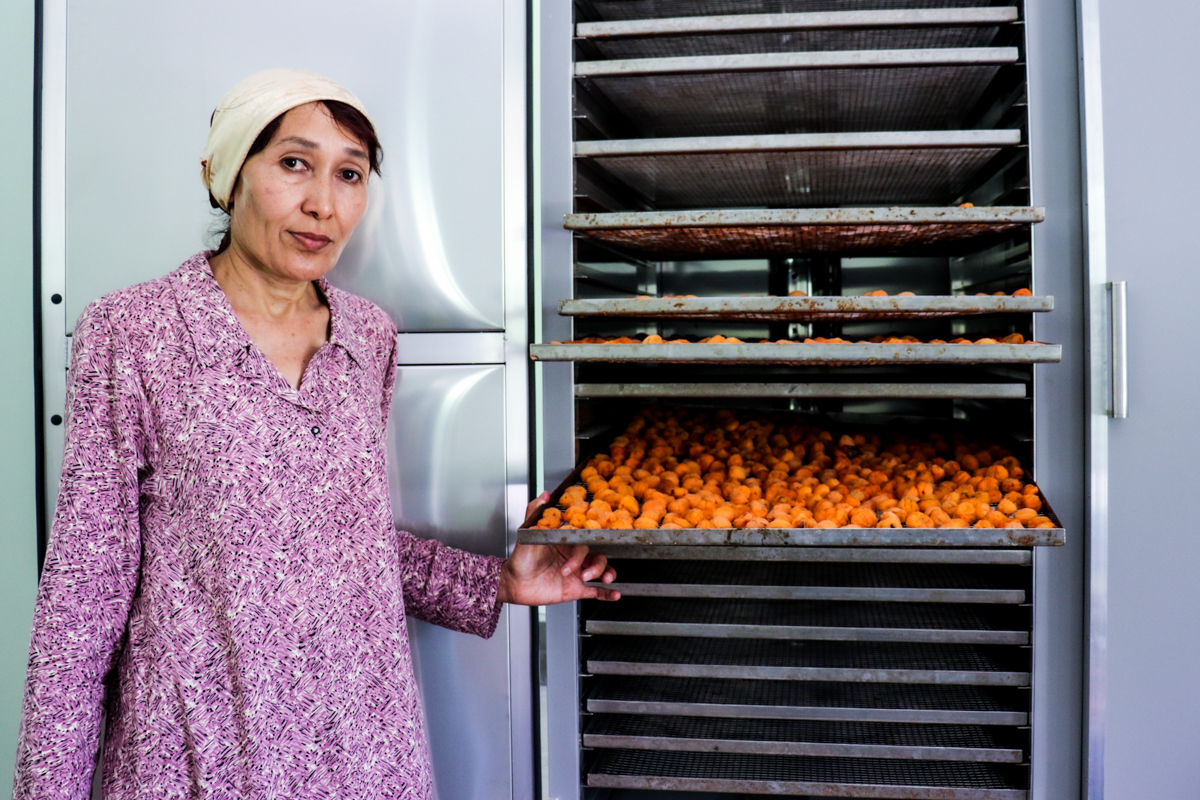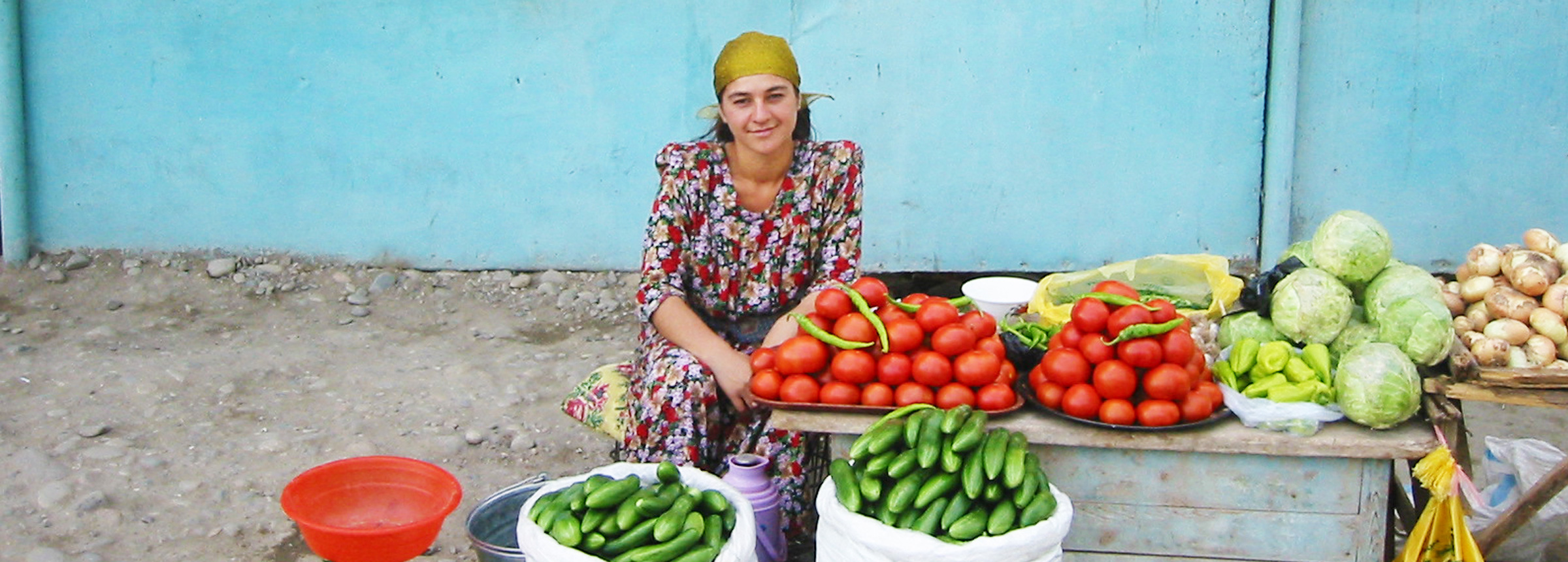
The Face of a Leader from Rural Khatlon
Sharofat Abdulloeva, a 52-year old resident of Yangiyor village of Vakhsh district in Khatlon province talks with pride about her agribusiness enterprise Aziza, which employs 50 female seasonal employees. However, just 15 years ago, this was only a dream for Sharofat.
In the village where Sharofat grew up, women rarely engaged in work outside of the house or went to school, due to the belief that girls should just get married and care for husbands. Sharofat dared to challenge these customs, and thanks to the support from her parents, she attended university and received a teaching degree. Upon graduation, she became a teacher, got married, and started a family.
However, in 1998, right after the birth of her son, her husband abandoned her, and Sharofat had to raise her son alone. Unable to support her family on a teacher’s salary, she sought additional employment, “I worked at a rural school for only two years when my husband left me, and in order to feed my family I had to work in the fields.”
Years of hard work in the field taught Sharofat resilience and gave her the determination to realize her dream of starting a business. Sharofat started by growing berries and fruits. In the early 2000s, she obtained her own plot of land to set up her business. However, she lacked the necessary business skills such as financial management, marketing, and good agricultural practices to be successful. To overcome this, she went back to college, where she graduated in 2010 with a degree in economics.
In 2015 Sharofat was one of only a handful of women to register an agribusiness. For her first three years, Sharofat’s company only engaged in production; she grew strawberries, rice, cotton, apricots, cherries, and vegetables. Wanting to help other women in her situation, Sharofat volunteered to share her experience and knowledge with others. She conducted training on business planning and introducing farming skills to other women. While she had a successful farming enterprise, Sharofat knew that with more training, she could do more.

2019 was a turning point for Sharofat. That is when she attended a fruit drying training provided by USAID’s Agribusiness Competitiveness Activity in Tajikistan. The Activity works to improve and expand market systems for increased employment opportunities and incomes for agribusinesses in Tajikistan.
Sharofat stated, “earlier I had no idea how to dry apricots properly. And not just me, all gardeners didn’t know what to do with them. Apricots would lay under the trees like an orange carpet, blackened and rotted. I did not know how to turn these into a marketable product and did what I always did, I let the fruit dry under the tree.”
Sharofat attended the seminars hosted by USAID’s Agribusiness Competitiveness Activity. The Activity facilitates the development of innovative and value-added products in the Khatlon region in order to improve the competitiveness of the region’s agribusiness sector and increase regional trade. She also went on a study tour to visit fruit drying facilities in northern Tajikistan. She learned new technologies and techniques, which she successfully applied to her business. Sharofatfoat now has skills in fruit drying, understands the market, and connections to traders. “Seven years ago, I was selling the dry apricots that fell from my trees for 0.50 TJS (4 cents) per kg. Today, I sell high-quality dried apricots for 25-35 TJS per kg (50 to 70 cents).”
To further professionalize Sharofat’s business, in May 2021 ACAT provided her with fruit drying equipment, which dries 300 kg of fruit at a time. This equipment allows Sharofat to dry 300 kg of fruit in eight hours, compared to 72 hours with manual drying. As Sharofat says, “time is gold, this new equipment reduced the time to dry fruit by a factor of nine. Today I am exclusively engaged in the search for raw materials so I can utilize my new machine to its full capacity.”
With increased capacity, Sharofat signed purchasing contracts with 40 of her neighbors and hired more than 50 seasonal employees, who earned around $5 a day. Sharofat says, “I am very grateful to USAID, without them I never would have had such equipment. At a B2B meeting in April 2021, the Activity linked me with a buyer who is interested in buying five tons of dry tomatoes for a restaurant chain in Dushanbe. So, we have lots of work. All seasonal workers are busy, and they are happy as they now earn more money to support their families. For three months, each of them will earn about $500.”
Sharofat continues to innovate every day. She recently started producing jam and opened a Café in Khatlon. The income from these activities alone is almost $1,000, which she is using to expand her processing capacity and improve the quality of life of her family. Sharofat has become a well recognized role model in Vakhsh district. In this role, she is working to promote Khatlon’s female entrepreneurs.
This story was originally published by USAID Central Asia on September 10, 2021.
Related Projects

